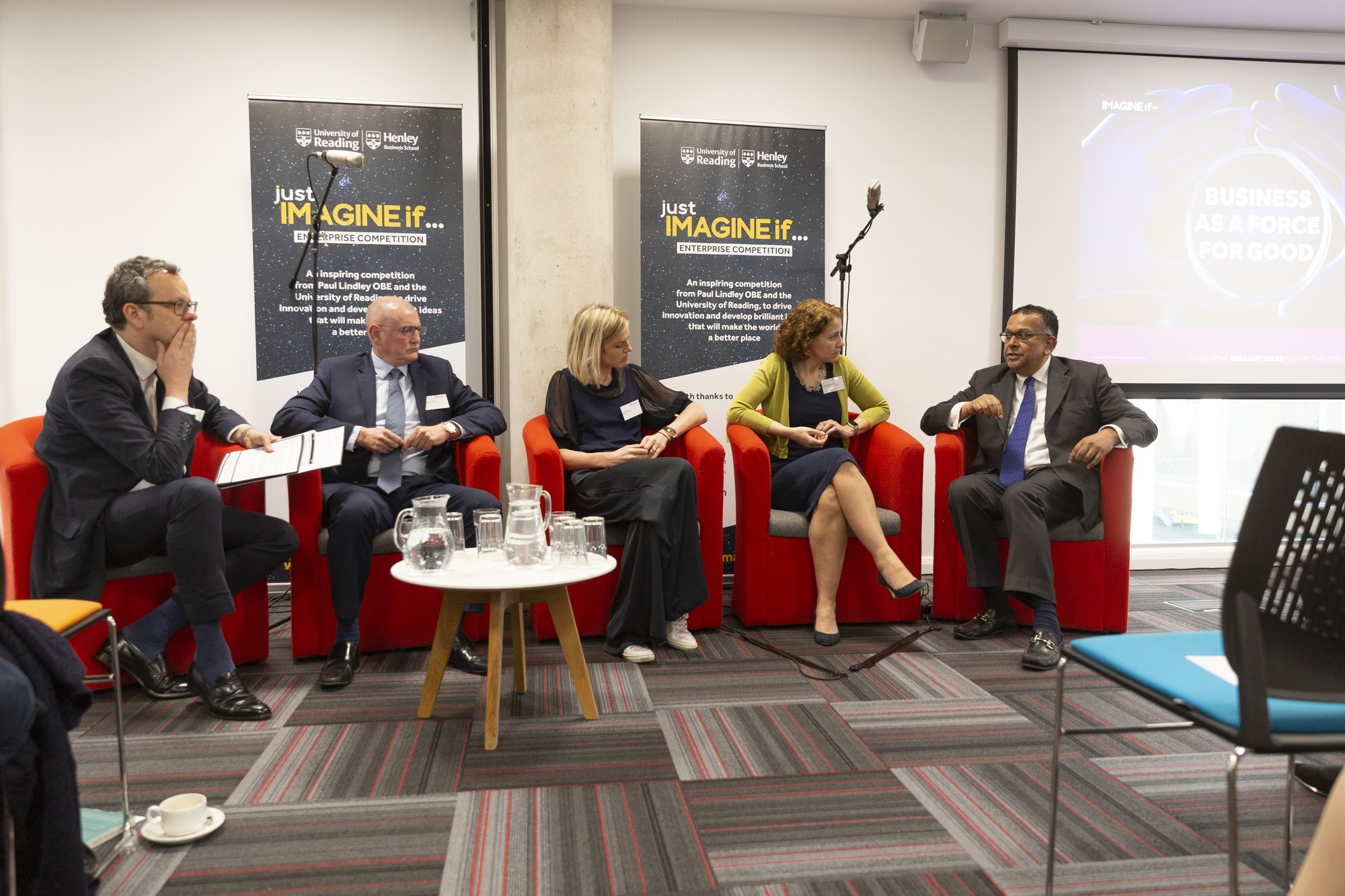Just IMAGINE if - Business was Always a Force of Good
The phrase 'just imagine if' has stayed with me throughout my life. Imagine a world of gender and racial equality. Imagine a world free from businesses polluting our environment. Imagine if we could make a genuine impact to reduce childhood obesity.
It's these dreams that led me to establish 'just IMAGINE if...', an annual, university-hosted, business-focused, non-profit competition to address the UN's Sustainable Development Goals - the 2019 final was at the University of Reading in February.
Just IMAGINE if... finds people with early stage, simple business ideas that could provide sustainable solutions to some of the most pressing social, cultural and environmental challenges facing society, and gives them a real chance of development into impactful actions.
I was delighted to see the incredible Alexander Wankel win our 2019 competition with his start-up, MilQ, which sources milk from Andean free-growing quinoa. His produce uses 3000% less water than cows would to create the same amount of dairy milk, and 300% less than the same amount of almonds used to produce almond milk, and is all sourced directly from Peruvian small holders. His website is here.
The passion and ambition Alexander showed in his pitch re-enforced to me the importance of business as a force for good. Not only do purpose-driven businesses help the world, those who lead them show a continued appetite to continue driving change forward.
This was in evidence on our opening event panel, titled 'Business as a force for good'. Hosted by Seven Hills co-founder Michael Hayman MBE, it featured Stephen Adams, head of equities, Kames Capital; Sacha Romanovitch, co-chair, Inclusive Economy Partnership; Iqbal Wahhab OBE, founder, Roast and the Cinnamon Club; and Jenny Costa, founder, Rubies in the Rubble.
All four of our panellists, and our panel chair, are experienced business leaders with visions of creating a more sustainable and purposeful world.
It was exhilarating for me to see them talk about these visions, what inspired them to become purposeful leaders themselves, and how they view others across the business spectrum for their approaches.
The key message of our panel was that organisations should embed purpose into their business models.
They told us that corporate social responsibility is outdated. Even the terms 'social enterprise' or 'impact business' should fall out of our vocabulary, because social impact should be so intertwined with a business's model, you cannot tell where the former ends and the latter begins.
It cannot be something that is seen as an added extra, or consumers will not engage. As Iqbal said, the impetus for businesses becoming purposeful really comes from consumers, who time and again show that they want to buy goods and pay for services that 'give back' in some way.
For consumers to buy into this though, our panel said that it has to be embedded into the brand. Doing right through one channel, for example, setting up a foundation that is linked to but distinct from your business, is not enough to make a purposeful business leader; particularly if employee or consumer treatment from the company is poor.
Purpose also has to permeate through a business's management structure, from top to bottom. Sacha shared her experience as former CEO of Grant Thornton, saying that she found that in order to lead a culture change from the top of the company, she needed those below and around her to push that change forward.
Discussion also touched on tech as a force for good, looking at the big tech companies that began their journeys as the ethical disruptors, but whose values have been compromised as they have grown both in size and influence.
The difficulty is that these companies have a specific purpose - whether that's connecting people around the world, providing affordable ride-sharing, or being a one-stop shop to buy anything and everything - but have compromised on some of their ethical values to achieve their mission.
What our panel made clear, is that every inch of your business has to make a social impact, for employees, consumers and for the wider world.
All of the businesses represented on our panel do this. They make a holistic impact on the world; whether through investing in other sustainable businesses, creating an inclusive economy, providing jobs to the long-term unemployed or reducing waste. It was with the same mindset that I founded Ella's Kitchen in 2006 and been its mindset ever since.
They inspire me as business leaders, and as human beings, and I am similarly inspired by every person who stood up to pitch at our competition, and laid out their ambitions to create a better world.
The future is bright, and if we all just imagine a better world - where all businesses implement purpose and sustainability at their core - we can build it.
Just IMAGINE if 2020 will be hosted by Durham University - the competition will be open from later this year.
